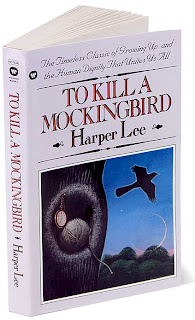My fellow writer and friend, Emily Kristin Anderson, asked me to contribute a post to her celebration of International Women's Week, and that's her title up there, not mine. But it was so good, I stole it just as I'm shamelessly reposting my two cents here. If, however, you'd like to visit Emily's page--and I'd encourage you to do so--you can see the post, in all its original glory, here.
* * *
So it’s International Women’s Week, and I feel . . . okay .
. . so? And? Yes, you’ll read this and decide I’m the
oddball here, the one ornery curmudgeon in the bunch when it comes to
celebrating women and women’s accomplishments.
But here’s my dilemma: International Women’s Week means very
little to me. I had no women role
models. No women inspired or mentored me.
No women helped me along the way.
Not a single woman was in my corner.
If I succeeded in medicine at all—my first profession before I turned to
writing—I succeeded in spite of being a woman.
There you go, short and sweet.
Now, I’m not being woe-is-me here, nor am I one of those
self-hating women. But this was my reality
in the late 70s, early 80s: there were women in medicine but not many. I competed and lived and tried to get ahead
in a world dominated by men. Other than
a single solitary female anatomist, I had no women professors in medical
school. Other than a few OB-GYNs, the
attendings were, to a man . . . well, men.
While there were women in my class, only one other woman, Annie,
went into surgery. Prior to that
internship year, I groveled through rotations at various hospitals, and in all
that time, I met exactly one female attending surgeon, an endocrine specialist
at Yale. There were no female interns or residents in any of the surgical
programs I was looking into, nor were there women in any of my various surgical
subspecialty rotations.
Are you beginning to see a pattern here? There were
no women, anywhere. There just weren’t,
and the very few you did find were too busy scrambling to keep their
footing. Because here’s another truism:
when you’re a women in a male-dominated world, you must do everything ten times
better than the men to earn their respect and prove you deserve to be
there. It’s just that way. You have to out-tough the men.
I finally got into a general surgery program, thank God, but
I was the first woman they had ever accepted.
I also knew, virtually from Day One, that I would never make it to a chief
resident’s slot. See, many surgical
programs operate in what’s known as the “pyramidal” system. It’s exactly what it sounds like. The program hires a bunch of
interns—fourteen, in this particular hospital—and then, beginning at the end of
the second year, starts to cut people from the program every year. By the fifth year, there will be two—count
them, two—chief residents. Everyone else, those twelve other unlucky
souls, will have gotten the axe along the way, and then they get to scramble
around for openings in other programs. Some of them get lucky right away. A lot don’t, and have to grub around for
years in part-time positions until they can land a slot. Some never do.
Now, just as a point of reference, a typical general
surgical program lasts five years; if you want to go into other subspecialties—say,
neurosurgery—that’s a total of nine years of training, but you must complete
all or most of a general surgery program first.
I wanted to do pediatric cardiovascular surgery, so we were talking,
well, a lot of years. But if I got
cut—and I knew I would be—then those were more years spent trying to find my
way into another program. Those five
years could become seven, or ten, and that’s all before subspecialty training. And forget marriage or a family.
Since this program had never admitted a woman before, they
didn’t have a uniform for me. I went
around in men’s smalls until I found a place to get women’s whites that weren’t
designer. (Nothing ruins those nice
Adrianos like a bucket of blood.) I got
called nurse a lot, and honey, too. Sweetie.
Pain
in the ass. (Sidebar: not once did I
ever hear any chief resident dress down any other intern for questioning a
call, and there were several. Not
once. But me . . . I was a pain in the
ass. See, being a girl cut both ways: it
was okay not to take me seriously, and perfectly fine to yell at me more,
too.) I even got groped several times by
an infectious disease guy. In all
fairness to me, I was pretty sick with viral meningitis at the time. Like, high
fever, spinal tap, we’re admitting you
sick. (I refused and drove myself
home. That spinal tap was just what I
needed. I felt much better—until I tried
to walk from the car into the condo. I
literally had to crawl into the townhouse and drag myself to the couch where I
then stayed, pretty much around the clock, for two weeks.) By the fourth exam with this infectious
disease bozo, I was recovered enough to finally cotton on to the fact that,
boy, this guy sure was being thorough, palpating every single solitary square
inch of bare, naked, I am thoroughly nude
flesh for those lymph nodes. I think I
was just too sick and then shocked to want to believe it.
But did I report him?
No. Get real. I was an intern, and a girl. Who was going to believe me? I didn’t want to make waves. I was already enough of a pain in the ass as
it was.
Not every attending was sexist; I remember two with great
fondness. They were excellent teachers,
and secure enough to tell me I’d done a good job when I’d done something, like
. . . well, save a guy’s life. Like the
time I just happened to be wandering through the recovery room pretty late one
night and the anesthetist, standing over a neurosurgery post-op patient and
looking really worried, said, “Hey,
Ilsa, would you come take a look at this guy? Something’s not right.” Uh . . . well, yeah, the guy’s pupils were
blowing. Which meant that his brain was
getting squished, and most likely from something still bleeding in there. So there I am, an intern, shouting at the
anesthetist to page an attending, any attending,
as I and a surgical nurse wheel the guy really, really fast into the surgical
suite where I glove up, no scrub at all because the guy is tanking that
quickly, and start tearing down his dressings and sutures—and then there’s a lot of blood bubbling out, and I’m thinking,
holy shit, there had better be someone
somewhere because this is an arterial bleeder for sure and this is a guy’s brain
I’m holding.
Thank heavens, there was a general surgeon—name of KJ—who came busting in, took
one look, started shouting more orders, and then said something that I will
never forget: “Good girl. Now go scrub up and let’s save this guy’s life.”
The girl wasn’t
pejorative; it was just the way it was, and KJ was a very kind and gentle guy
for a surgeon. But those moments, where
my competence as a doctor was recognized without the haze of my sex, were
rare.
The writing was on the wall, and I knew it. I saw what happened to guys who got cut from
the program; a ton didn’t find slots and ended up working in ERs. (In retrospect, if ER medicine had been a
specialty back then, I’d have jumped into that in a heartbeat. Love that kind of medicine.) To be honest, I didn’t have it in me to keep
fighting for the very limited slots.
So I jumped ship to child psychiatry. There were a few more women in that
profession (again, not many; most women were social workers), and I
was—again—the only woman in an all-male residency class. I wish I could say that I found the very few
female MDs to be warm and welcoming and encouraging, but they weren’t. The reason is pretty simple, too. They’d come up in the same system I had. They knew the score. When you’re competing in an all-male
environment, you man up; those other women are your competition. They’re not there to help you; you’re all
trying to elbow each other out of the way, hoping to grab onto that next
rung.
Whatever. I got along
fine with the guys. I lucked out with a really
great group of men, who helped me through some tough times with—yes—a female
supervisor, a real competitive ball-buster that everyone, everyone, hated. Things got
so tense between us—and, of course, when you’re a resident, it’s always your
fault—that I was finally handed off to a male supervisor midway through my
second year.
Best thing that ever happened to me. This guy was terrific: not only gentle and
insightful but very accepting. He was
the one who encouraged me to pursue my interest in film and literature and go
back to school for my masters; who understood that I was, yeah, kind of bored because a lot of what we were
learning came pretty easily to me. He’s
dead now—a heart attack about ten years ago—but I will never forget him. I’m only sorry he’s not around now to see
what came of all the hours we spent talking literature and film and, yes,
patients.
To be truthful, even when I finally began writing, my role
models and teachers and champions were all men.
I can’t tell if I self-selected for guys because of my background—not only
medicine but the military where I had to wear Wellies to wade through the
testosterone—or it was just the luck of the draw. In part, I think it’s because I started out
in science fiction and work-for-hire in other universes—Star Trek, Mechwarrior, Battletech—which are still pretty heavily
male-dominated. Not all, not all, stop
yelling . . . but you know what I mean.
Head to GenCon or a ton of sf or Trek
cons . . . and there are a lot of guys.
So . . . what is the moral of this? Beats me.
I can say that not only do I know a lot more women now, I know a lot
more very nice women. Like, we’re talking the kind of supportive
sisterhood I wish I’d had way back when.
There is absolutely no way that any of the very few women I knew back in
medicine would’ve been a tenth as generous
as the women pros—writers, editors, publishers, agents, bloggers, librarians—it’s
my privilege to know now. I’m serious.
I guess the take-home message is, you guys, don’t take any
of this, or each other, for granted. Beneath
this expert coloring job, there’s a lot of gray, and I’m here to tell you that,
for me, it’s been a long, hard, and sometimes brutal road. At this point, I can no longer tell if that’s
been good or bad; it just is, and I am who I am, for good or ill. But if you do anything from now on, remember
this. Pay attention now.
Regardless of gender, kindness and generosity matter most, and
the truly kind are those with nothing to apologize for or prove.
Pay it forward, people.
















